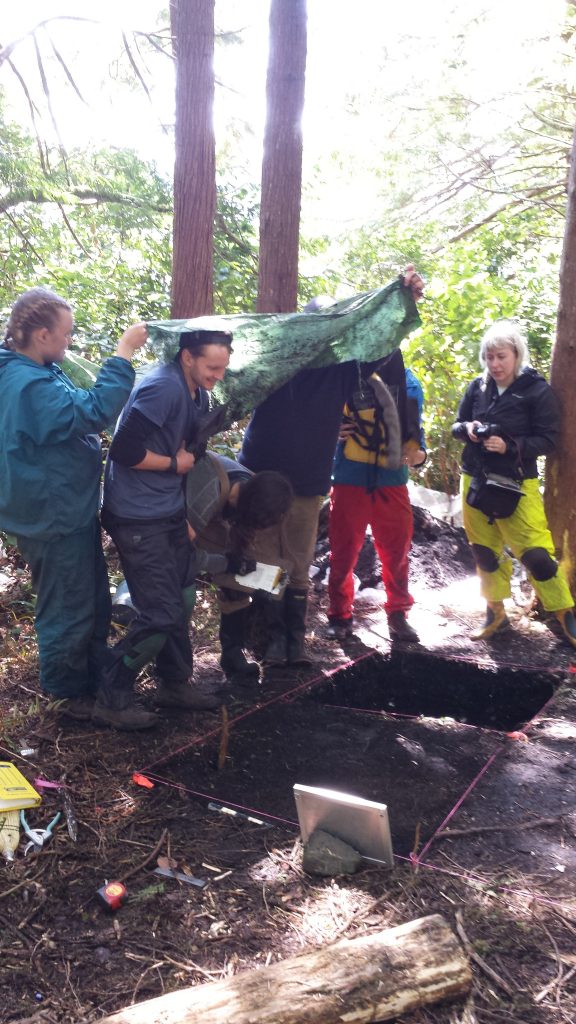As I embarked on UVic’s Historical Ecology and Archaeology field school, I was tentative to think of what I should expect from working with a group of individuals who had never worked together before, let alone on a project of this nature. For the majority of us, this archaeological dig was something brand new. We had read about the methods and theories behind excavation in our previous university classes yet most of us knew that there was to be no comparison between that and the real thing. We needed to get our hands dirty.
This burgeoning eagerness among my fellow classmates and myself brought about trepidations. I was curious as to how the group would be able to navigate the real world of archaeology. Thoughts of teamwork and group interactions ran through my head as we set up camp on the day leading up to our breaking of ground. Would we all be able to come together cohesively as units and accomplish what was being asked of us? Would natural leaders, doers, and motivators come forward among the groups? Or would everyone be too cautious to assume any type of role.
After the first day it was pretty clear that the majority of members from my unit were ready to take charge in their own way. Of course there were first day nerves and hesitations that came with attempting something new but those were soon put to rest after seeing on our first day in the field that it was to be a learning curve for all of us. By day 3, things were running smoothly, with each of us rotating roles and sharing in task work.
The next step in the group process was being able to solve problems. And we were tested almost immediately. By mistake, a quadrant in our unit was dug too deep, passing through to a new level. Instead of dwelling on the error, my group members came together and worked around the issue instead of against it. The group realized something needed to be done and were quick to react. This cohesive functioning proved to be a useful strength throughout our two week excavation as we were repeatedly handed problems to solve – something that occurs in any field of work, regardless of how much of an expert you are.
By the end of our two-week fieldwork, all of my initial worries had been squashed. We were functioning like a well-oiled machine. We did not constantly need to consult each other if we were unsure of something. Trust had been built among most individuals that tasks could be completed properly and efficiently. We had established which parts of archaeology we enjoyed doing over others. And we constantly shared our knowledge of the task at hand without judgment. We were well and truly a group of student archaeologists excavating a real site with real data. We were a unit. 